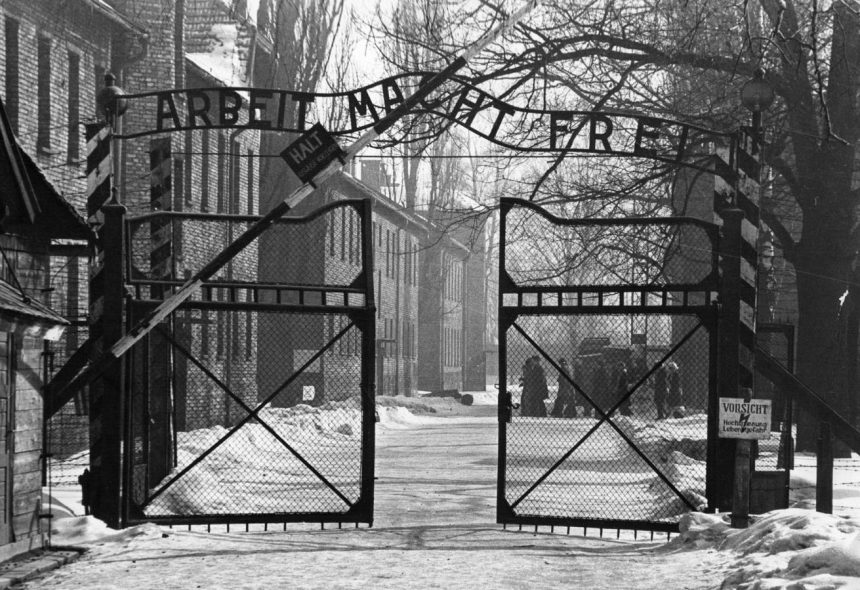January 27, 2025, marks a solemn occasion, the 80th anniversary of the liberation of Auschwitz-Birkenau, the largest Nazi concentration and extermination camp. More than one million lives were extinguished within its barbed wire fences, a chilling testament to the depths of human depravity. The majority of victims were Jewish people, systematically targeted as part of the Nazi’s “Final Solution,” but the camp’s horrors also claimed the lives of Poles, Roma, Soviet prisoners of war, and individuals from other nationalities. Established in early 1940 to manage the escalating number of arrests flooding prisons across Europe, Auschwitz initially held Polish prisoners. However, its sinister purpose transformed in 1942, evolving from a concentration camp into a mechanized killing center dedicated to the extermination of Jewish people. Over time, the Auschwitz complex expanded into three distinct sections: Auschwitz I, Auschwitz II-Birkenau, and Auschwitz III-Monowitz. The liberation by Soviet troops in January 1945 revealed the full extent of the horrors perpetrated within its walls, but for over a million souls, freedom arrived too late.
The liberation of Auschwitz-Birkenau became a pivotal moment in human history, symbolizing the utter devastation wrought by the Holocaust and the desperate need to prevent such atrocities from ever occurring again. In 2005, the United Nations General Assembly designated January 27 as International Holocaust Remembrance Day, a day dedicated not only to mourning the victims but also to educating future generations about the dangers of hatred and intolerance. The resolution emphasizes the importance of developing educational programs that instill the lessons of the Holocaust to prevent future acts of genocide. It also unequivocally condemns all forms of religious intolerance, incitement, harassment, and violence against individuals or communities based on ethnic origin or religious belief. The day serves as a stark reminder of the consequences of allowing hatred and dehumanization to take hold.
This year’s commemoration theme, “Holocaust Remembrance and Education for Dignity and Human Rights,” underscores the ongoing relevance of Holocaust remembrance in a world where human rights violations persist. The UN emphasizes the critical connection between the horrors of the past and present-day challenges, highlighting the vulnerability of human dignity and rights to ongoing attacks. The Holocaust stands as a stark warning of the dangers of apathy and the devastating consequences when hatred goes unchecked. It underscores the urgent need for vigilance and proactive measures to protect human rights and uphold the dignity of all individuals.
The atrocities of the Holocaust, and the Second World War more broadly, profoundly impacted the global conscience, prompting significant actions towards justice and accountability. The establishment of the United Nations, the Nuremberg trials, and the codification of genocide as an international crime under the UN Convention on the Prevention and Punishment of the Crime of Genocide were direct responses to the horrors witnessed during the war. These initiatives aimed to establish a framework for international justice and cooperation, holding perpetrators accountable and preventing future atrocities. The Convention, in particular, recognized genocide as a crime against humanity and outlined the legal obligations of states to prevent and punish this egregious crime.
However, despite the significant progress made since the liberation of Auschwitz-Birkenau, the international community has fallen short of fulfilling its promises to prevent and punish genocide and other atrocity crimes. While the legal framework exists, its implementation remains inconsistent and often inadequate. Only a limited number of countries have established effective early warning systems to identify potential atrocity situations, and even fewer have implemented comprehensive prevention strategies. The recurring pattern of delayed and insufficient responses to ongoing atrocities, coupled with pervasive impunity for perpetrators, sends a dangerous message that such crimes can be committed without consequence.
Commemorating the 80th anniversary of Auschwitz’s liberation requires more than mere words; it demands concrete actions to finally realize the promises made after the Holocaust and subsequent genocides. Nations must take ownership of their responsibilities to prevent and respond to atrocity crimes, adopting proactive strategies and robust legal frameworks. The Elie Wiesel Genocide and Atrocities Prevention Act of 2018, enacted by the United States, provides a valuable model for other countries to emulate. This act prioritizes atrocity prevention as a matter of national security, mandates training for foreign service officers in conflict and atrocity prevention, and requires regular reporting on ongoing atrocities and international responses. Furthermore, it is crucial to ensure that genocide and other atrocity crimes are effectively criminalized within national legal systems, that local authorities are trained to investigate these crimes, and that mechanisms are in place to bring perpetrators to justice, thereby eliminating the environment of impunity that allows such crimes to flourish. Until these crucial steps are taken, “never again” will remain an unfulfilled pledge, a hollow phrase echoing against the backdrop of ongoing human suffering.


